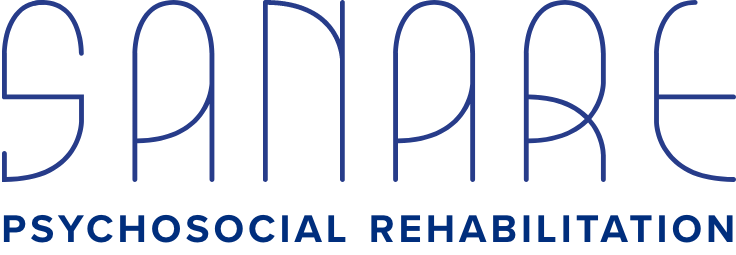
DIalectical Behavioral Therapy
History of Dialectical Behavioral Therapy (DBT)
In the late 1980s, psychologist Dr. Marsha M. Linehan developed Dialectical Behavioral Therapy (DBT) to help individuals with borderline personality disorder manage intense emotions and improve their quality of life. Drawing on her own experiences and research, Dr. Linehan integrated elements of cognitive-behavioral therapy with mindfulness practices to create a comprehensive treatment approach.
DBT quickly gained recognition for its effectiveness in treating various mental health issues beyond borderline personality disorder, including depression, anxiety disorders, substance abuse, and eating disorders. Its emphasis on balancing acceptance and change resonated with therapists and clients alike.
Over the years, DBT has evolved into a widely used therapeutic modality with proven success in helping individuals build resilience, regulate emotions, enhance interpersonal skills, and cultivate a sense of self-empowerment. The rich history of DBT continues to inspire therapists worldwide to support their clients in achieving lasting emotional well-being.
What is Dialectical Behavioral Therapy
Dialectical Behavioral Therapy (DBT) is a type of psychotherapy that combines cognitive-behavioral techniques with mindfulness practices to help individuals develop skills for managing emotions, interpersonal relationships, and distressing situations.
The four main components of DBT are:
1. Mindfulness - focusing on the present moment without judgment or attachment.
2. Distress Tolerance - learning how to tolerate and cope with intense emotions without resorting to harmful behaviors.
3. Emotion Regulation - identifying and understanding emotions while learning healthy ways to manage them.
4. Interpersonal Effectiveness - developing assertiveness skills, setting boundaries, and improving communication in relationships.
By incorporating these components into therapy sessions, individuals can learn practical strategies for navigating life's challenges with more resilience and self-awareness.
Research behind Dialectical Behavioral Therapy
Research behind DBT reveals its effectiveness in treating a variety of mental health conditions. Studies have shown that Dialectical Behavioral Therapy is particularly beneficial for individuals struggling with borderline personality disorder, eating disorders, substance abuse, and mood disorders. Research has also demonstrated the long-term positive impact of DBT on reducing suicidal behavior and improving overall quality of life.
Numerous clinical trials have supported the efficacy of DBT in helping individuals develop coping skills to manage intense emotions and improve interpersonal relationships. Additionally, research has highlighted how DBT combines cognitive-behavioral techniques with mindfulness practices to promote emotional regulation and distress tolerance.
Furthermore, studies have indicated that integrating elements of DBT into traditional therapy approaches can enhance treatment outcomes for clients facing complex emotional challenges. The evidence-based research backing Dialectical Behavioral Therapy continues to grow, solidifying its reputation as a valuable therapeutic modality in the field of mental health care.
DBT at Sanare Psychosocial Rehabilitation
Dialectical Behavioral Therapy (DBT) can indeed benefit from being conducted in real-world settings rather than solely in a therapy office. Here are some key advantages:
Generalization of Skills: Real-world settings offer opportunities for clients to practice DBT skills in the environments where they are most needed. This helps in generalizing these skills beyond the therapy room into everyday life situations. For example, practicing distress tolerance skills in stressful situations at work or social settings can enhance their effectiveness.
Contextual Learning: Clients can experience and address triggers, challenges, and stressors in real-time, which provides a more contextual and immediate learning experience. This can lead to deeper insights and better application of coping strategies learned in therapy.
Enhanced Relevance: By working in real-world settings, therapists can tailor interventions and strategies that are directly applicable to the client's specific life circumstances and challenges. This makes therapy more relevant and meaningful to the client's daily life.
Behavioral Activation: Engaging in therapy activities outside of the office can contribute to behavioral activation, which is particularly beneficial for clients struggling with depression or low motivation. It encourages them to participate in positive activities and break patterns of isolation or avoidance.
Behavioral Observations: Therapists can observe and assess behavioral patterns and interactions in real-time, which provides valuable insights into the client's progress and areas needing further development. This can inform adjustments in treatment strategies to better meet the client's needs.
Increased Confidence: Successfully applying DBT skills in real-world situations can boost clients' confidence and self-efficacy. It reinforces the belief that they can effectively manage their emotions, cope with stressors, and navigate challenging situations independently.
Social Skills Development: Real-world settings provide opportunities for practicing interpersonal effectiveness skills, such as assertiveness and boundary-setting, with real people in real interactions. This can lead to improved relationships and communication skills.
Natural Reinforcement: Clients can experience natural consequences and reinforcements of their behaviors, which can facilitate learning and motivation to continue applying DBT skills. This can include positive outcomes from using skills effectively or learning from less successful attempts.
In summary, integrating DBT into real-world settings allows for a more holistic and effective therapeutic experience by bridging the gap between theory and practice. It empowers clients to apply and refine their skills in the contexts where they face challenges, thereby promoting lasting change and emotional resilience.
For more information about Dialectical Behavioral Therapy, please visit the Association for Behavioral and Cognitive Therapies.
